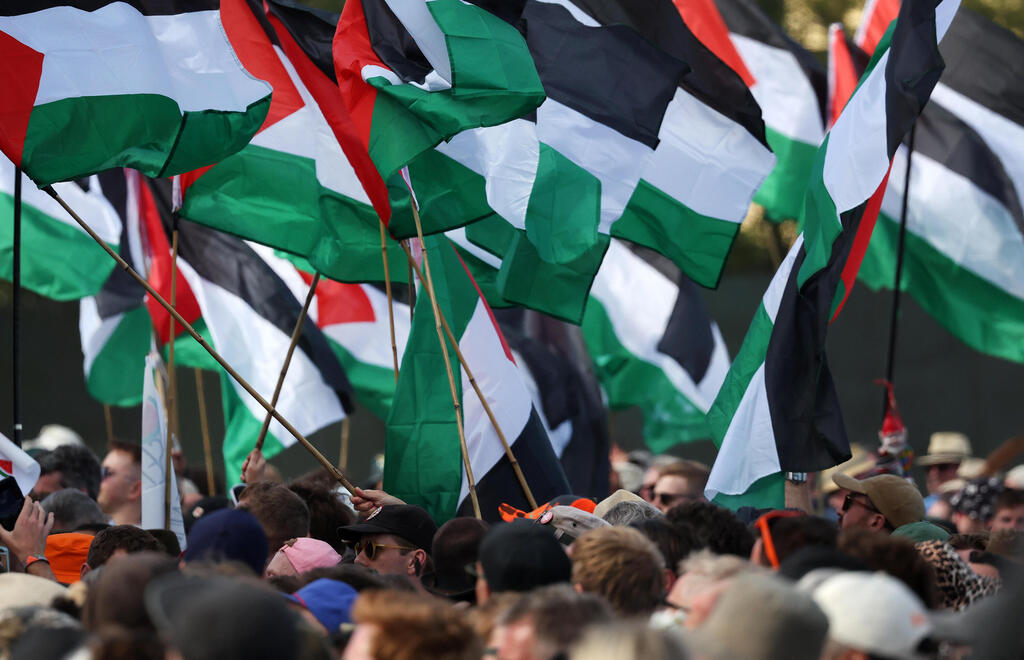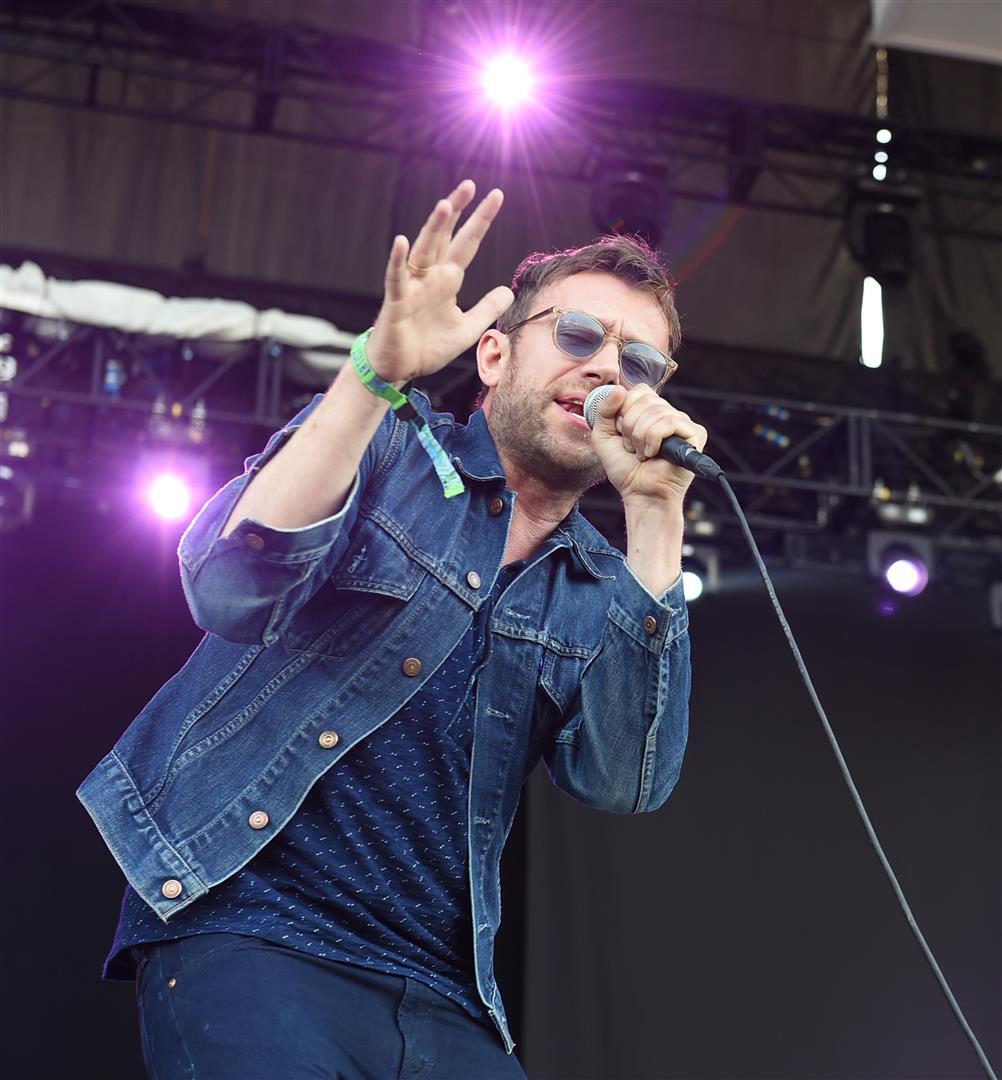Saturday morning, I woke up to a flood of messages and tags. "Did you see what Damon Albarn said at Glastonbury?" Those who know me understand that Albarn and his music have been a part of my life for decades, from the Blur days, through Gorillaz, to his solo albums. I even had the privilege of having him sing to me at an intimate concert, a touching moment deeply etched in my memory.
In July last year, a few months before the skies fell on all of us, I sat with Israeli friends in a makeshift operations room to ensure we succeeded in buying golden ring tickets for Blur's reunion concert at Wembley. And what a concert it was. Albarn was teary-eyed with excitement, and we shed tears alongside him.
I quickly opened one of the clips sent to me. Albarn, who appeared as a guest with the Bombay Bicycle Club at the iconic Glastonbury music festival, was seen addressing a thrilled crowd of tens of thousands: "Answer me three things," he said. "First: Palestine. Show me how you feel about Palestine. Are you pro-Palestine?" The crowd responded, but not very loudly. "Are you pro-Palestine?" Albarn asked again, this time receiving strong cheers. "Do you also think this war is unfair?" he continued, and then he talked about the importance of voting in elections and how the world belongs to the young. Thirty seconds, three heavy-weight topics.
The Israeli-Palestinian existential war, a deep and complex conflict that has existed longer than Mr. Albarn has been alive, received ten seconds of his attention. Yet, in those ten seconds, he managed to cause enormous damage in a world already not very favorable to us. And he is not alone. At the same festival, the band Idles led the entire crowd to sing "Viva Palestina," queer singer Janelle Monáe, who performed in London yesterday, gave a speech about how the LGBTQ+ community always helps minorities and the oppressed and therefore will not sit idly by when there is genocide in Palestine. SZA, who is in the midst of a world tour, makes sure to appear on stage with a Palestinian flag, riling up the crowd with calls of "Free Palestine" while twerking in tiny shorts.
I won't delve into the moral questions and hypocrisy that accompany each of these artists who feel they must share their political views on a conflict they have no part in, often stemming from ignorance, lack of understanding, or lack of self-awareness. I won't address factual questions like what the true definition of "genocide" is and what is happening with the genocide taking place as these lines are written in Sudan, which no one talks about. But I will talk about how these artists forget, or simply do not care, that there might be Israeli and Jewish fans in the audience who made an effort and paid good money to see and perhaps enjoy an artist they love.
So yes, Damon Albarn, a white man from a high socio-economic status, was born in England and never had to fight for his life — war is not fair. But let me tell you and your ilk something: it's also not fair to hijack a concert and its audience, making people feel unwelcome, targeted, and very uncomfortable. It's not fair to forget that a war has two sides and that most likely, the Israelis who came to see you probably know someone who was murdered, kidnapped, or killed. It's not fair to forget that a music festival, like Glastonbury happening right now, was hijacked by terrorists and that an audience that came to enjoy and dance was murdered in ways that even in the worst nightmares are unimaginable. It's not fair.
The heartbreak Israeli music fans are experiencing these days only adds to the existential heartbreak since October, but it's somewhat comforting to know that some do it differently. Coldplay, whom thousands of Israelis follow around the world, were the headliners of Glastonbury last night.
Chris Martin, in the middle of the concert, led a prayer with the audience dedicated to our divided world. "We encourage the audience to send a prayer, whether it's to Israel, Palestine, Ukraine, Russia, or anyone else suffering," said Martin, and in his words — as well as the Israeli flag proudly carried by a fan and clearly visible in the BBC's live broadcast — there was solace.
Music is meant to bring people closer and often helps heal a hurting soul and a broken heart, and it would be nice if musicians remembered that. And if you are musicians who feel compelled to say something, then learn from Chris Martin and Coldplay — as well as U2 and Bono—that there is a way to convey a message and do things respectfully and humanely.




